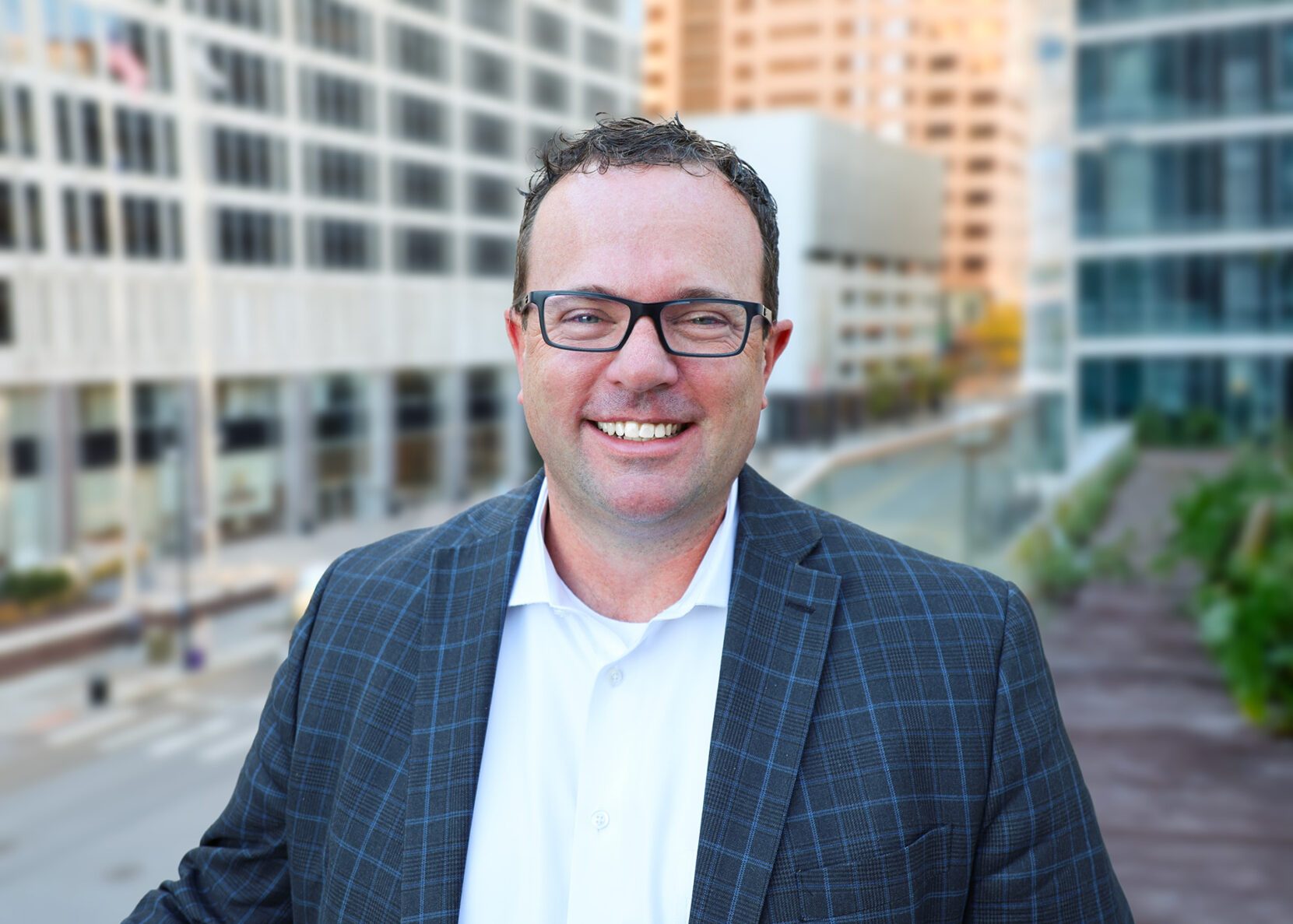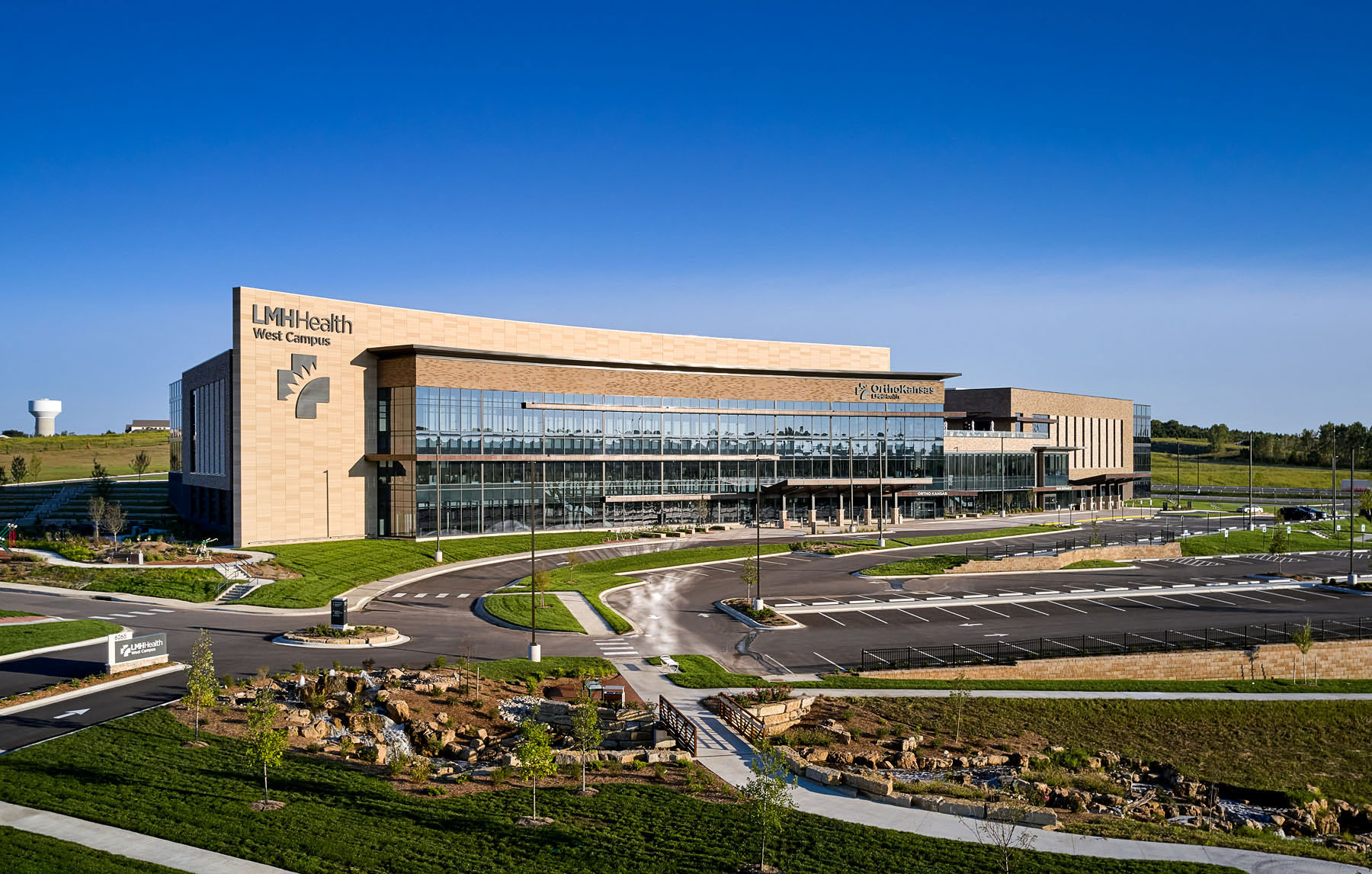Higher education grapples with questions of permanent change
Colleges and universities discover that meaningful, rapid transformation is both possible and necessary

Moderator:
Matt Glenn, Market Leader, Higher Education, McCownGordon
Panelists:
Mauli Agrawal, Chancellor, University of Missouri-Kansas City
Chancellor Douglas A. Girod, University of Kansas
Dr. Andrew W. Bowne, President, Johnson County Community College
Dr. Kimberly Beatty, Chancellor, Metropolitan Community College
Elizabeth MacLeod Walls, Ph.D., President, William Jewell College
The staid establishment of higher education has reached the brink of rapid change — to the physical campus, to the strategies of teaching, to the very goals of the institutions, according to a panel of education leaders from the Kansas City area.
Change factors have been converging for years, according to the panel at McCownGordon Construction. But when the pandemic forced learning entirely online in a matter of days, institutions discovered that meaningful, rapid transformation is both possible and necessary. The interruption gave leaders pause to think deeply about the missions underpinning the entire sector.
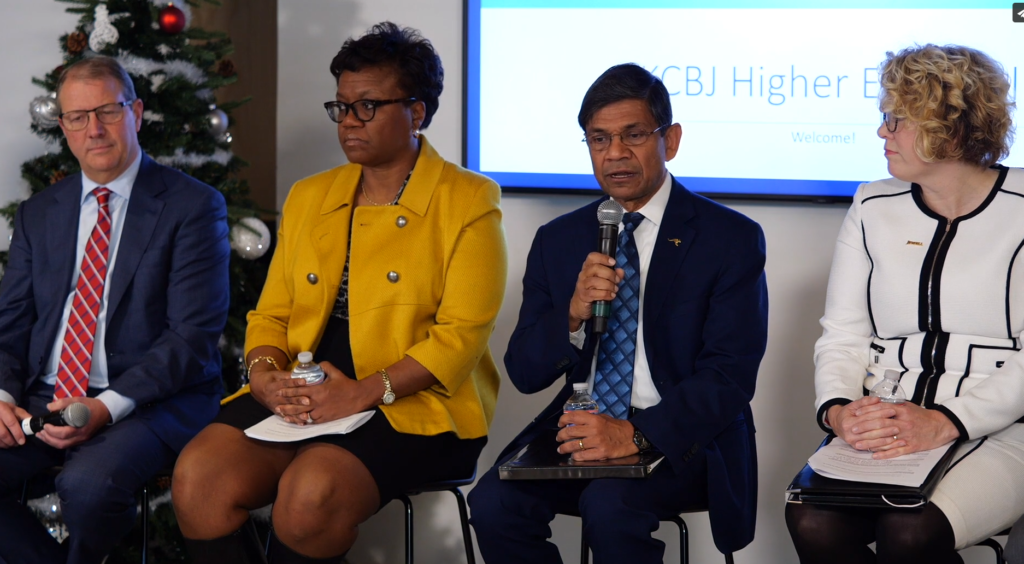
“Our industry will be disrupted,” said C. Mauli Agrawal, chancellor of the University of Missouri-Kansas City. “Every other industry has been disrupted over the past 30 years. Higher education is carrying on like we have done for many hundreds of years, and if you don’t watch out, somebody will come and disrupt us. So what matters is to self-disrupt before that.”
That doesn’t mean scrapping campuses and in-person teaching. Indeed, undergraduate students overwhelmingly favor the entire in-person campus experience, though graduate and professional students are more amenable to online options, Agrawal said. UMKC has shifted from 20 percent online learning to 30 percent, and he expects that increase to stick.
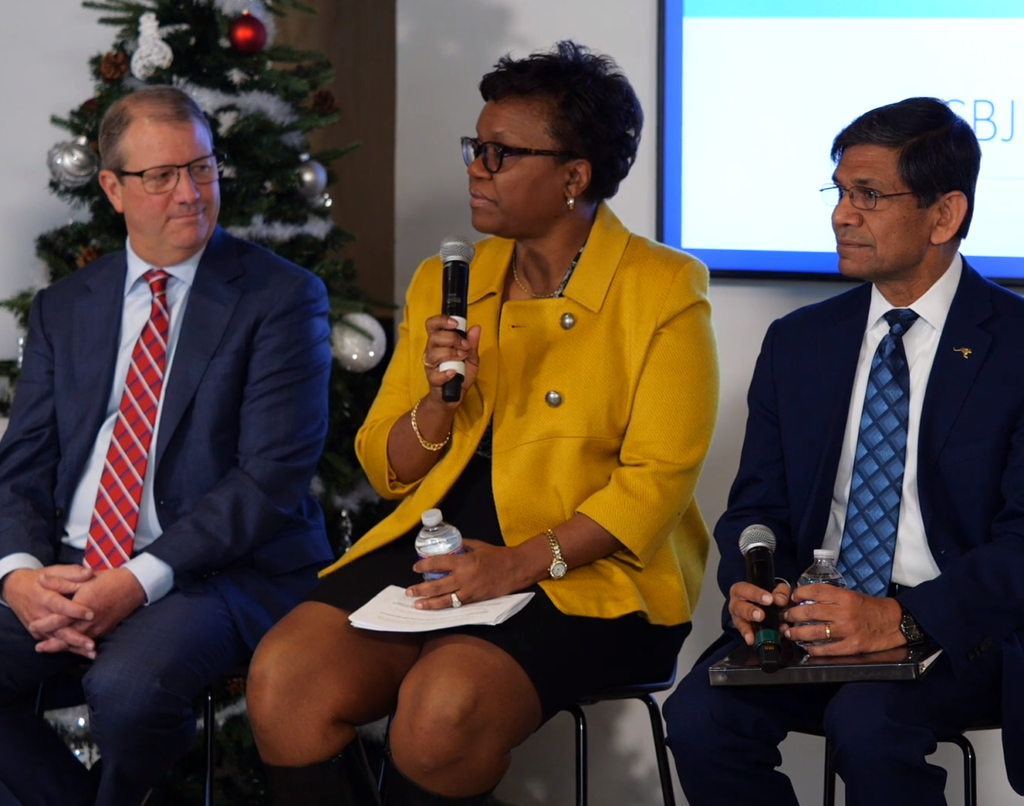
Metropolitan Community College Chancellor Kimberly Beatty said the college is trying to be strategic with its online options, not allowing them to grow too much. Technology has its place, and the college has taken important strides to supplement its in-person learning, but skills such as welding, driving trucks and practicing health sciences require physical space.
“We’re not an online college; that’s not our mission,” she said.
Still, leaders in higher education are grappling with questions of permanent change, such as long-term policies about remote work, the formats and numbers of campus buildings, appropriate modes of teaching, and the longstanding notion that potential students must jump through certain hoops to be deemed worthy of a post-secondary education.
None of the answers are simple. The matter of remote work prompts debate about who is eligible; whether in-person employees should be compensated more for their added commuting, childcare and other expenses; and how to fairly treat those whose jobs don’t allow for remote work, panelists said.
“The human piece is a challenge now,” Beatty said.
Embracing remote work and education also means a dramatic alteration in the amount and type of facilities required, said University of Kansas Chancellor Douglas Girod. KU needs to get probably 30 percent of its facilities offline, and the system faces a heavy load of deferred maintenance, he said.
On top of that, education has shifted to interactive, experiential, and team-driven learning, with a heavy dose of technology. “It really changes how we think about what kind of space we need,” Girod said. “I would say we’re in the very early phases of trying to figure out that piece.”
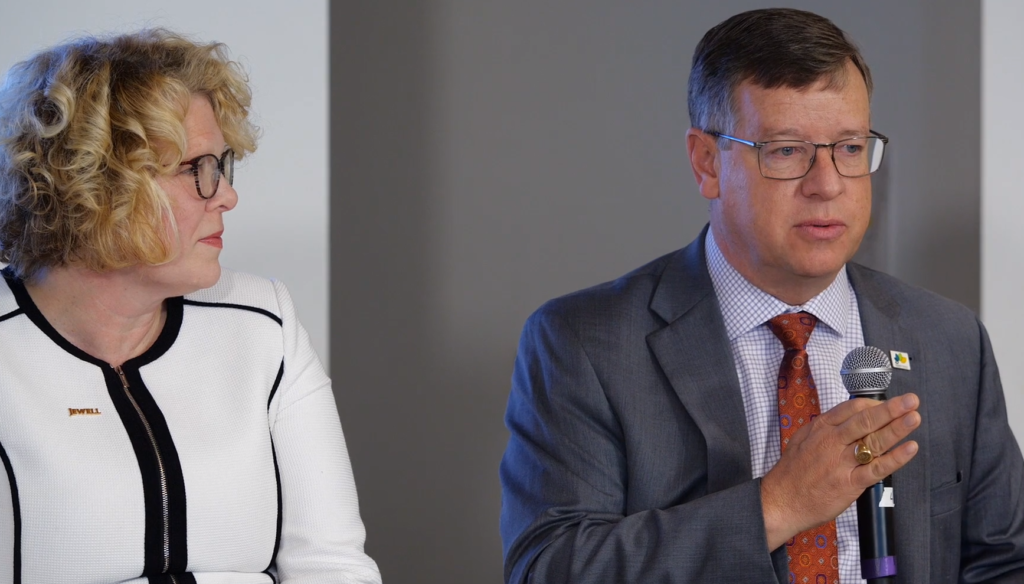
In the past, most people considered education as either in-person or online. But the two have become permanently blended, said Andrew Bowne, president of Johnson County Community College. That carries beyond teaching to serving, advising or even providing medical and mental health care to students. “I don’t see us moving back to either/or,” Bowne said. “It will be both/and moving forward.”
Panelists said that as they add or upgrade facilities, they’re seeking flexibility to keep the spaces relevant for years to come. Girod doesn’t expect ever to build another stadium-style classroom nor another traditional, cubicle-style office building. Rather, colleges need temporary landing spaces and meeting spaces.
Institutions also have new perspectives about their missions, seeking to be student-ready rather than solely demanding that students be college-ready, panelists said. If colleges aren’t student-ready, they’re not advancing students, industry or equity, said Elizabeth MacLeod Walls, president of the private William Jewell College. They should consider students as customers, serving all students of promise rather than only those who can jump through their hoops. “Education in the future has to be different,” she said.
UMKC has made a change that may appear subtle to outsiders but is dramatic internally: Rather than emphasizing degrees, it emphasizes careers, Agrawal said. That alters the advising process, introduces more career mentoring and external internships, and often means educating students about the type of training, standardized tests or number of degrees required for their desired careers.
The panelists acknowledged a responsibility to train the local workforce. “The community college is the lynchpin for upskilling, in my opinion,” Beatty said, adding that programs MCC offers directly address today’s supply-chain challenges. “(Its programs) will add prosperity and keep people here in Kansas City. The challenge is keeping pace with emerging technologies.” Colleges also are expanding the potential communities they serve. Panelists referred to the concept of stackable credentials for professionals — short courses that don’t count for college credit but aid in career advancement.
Graduates typically go through seven careers during their professional lives, which means part of their initial education quickly becomes obsolete, Girod said. “It’s the skillset that matters,” he said. Efforts to train tomorrow’s workforce are critical: The number of high school graduates is down 17 percent from a decade ago.
“That is a major problem,” Girod said. “It will require us to rethink what we do, how we do it, and how to do it more effectively.”
Watch Now



